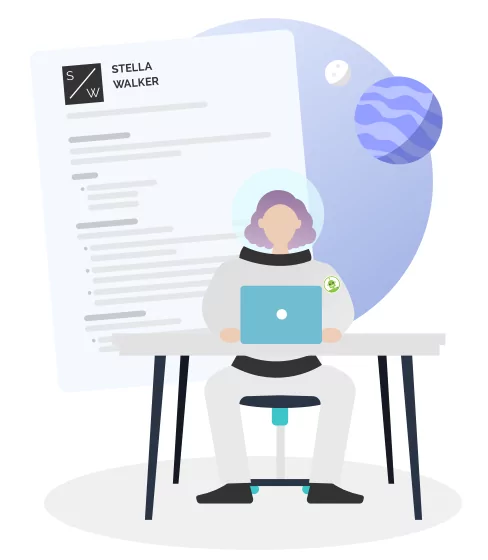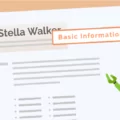Expressing your long-term goals is a crucial component of interviews. How do you answer the interview question, “Where do you see yourself in five years?”

Tips to Answer “Where Do You See Yourself in Five Years?”
Where Do You See Yourself in Five Years
Knowing your long-term career goals is not always easy, but if you’re in a job search, especially for a job that’s not an entry-level position, you need to know how to talk about your future goals. One of the most common job interview questions is asking you about your career goals, both in the long term and in the short term. When you’re expressing your career goals in interviews, you need to know how to answer a variety of interview questions related to these goals. Here are a few tips to consider when an interviewer asks questions like, “Where do you see yourself in five years?”

What Does This Question Mean?
First of all, it’s important to understand why interviewers ask this question in the first place. If you can get a better understanding of the question, then you’ll know how to respond when it’s asked. Interviewers know that you don’t have a crystal ball and can’t be 100% certain about where you’re going in your career. However, what they do know is that it can be expensive to hire new employees and if at all possible, they want this to be your last job. If you’re just using the job as a stepping stone to a “better job,” then that’s a red flag, and they want to know about it. By asking you about your career path, they’re able to make sure your goals align with the company goals.
Formulating Your Answer to the Question
To answer the question of what you hope to be doing in five years, you first need to come up with the answer to it yourself. Many people don’t have a five-year plan, and you may not even know what your dream job is. So, how can you decide on your own answer to this question?
Start with what you’re passionate about. Are you in the industry that you hope to be in for the rest of your life? Is there another similar industry that you want to pursue? What is some career advice you’ve gotten that you hope to carry with you? These are all things that you need to know to create your own answer.
Three Points to Base Your Answer On
Once you generally know where you hope to be in your career after five years, you now have to understand how you’re going to communicate this to the recruiter. Of course, it’s best not to lie, but if your new job isn’t where you hope to be for the next five years, you need to find something that makes you a good candidate for the job offer without disqualifying you from the pool of job seekers. Here are a few options if you’re looking for example answers:
-
Growing and changing with the company
The first thing you can spotlight is a desire to grow and change with the company. For example, if you’re working for a startup, a great sample answer may be, “I’m really excited to see where this company ends up going. I really love the company culture that I’ve already seen here, and in the next five years, I think we could do a lot to move the field forward as a whole.” With this, you’re indicating that you don’t want to move on to a new job anytime soon, and you believe that you’ll stay with the company for some time.
-
Work you want to do for the company’s benefit
You can also choose to center the work that you see in the job description. For example, if you’re applying for a project management position, you might say, “I’m really excited to start managing this program for you guys. In previous job titles, I’ve been able to help improve efficiency and bring team members together, and that’s something I’m really excited to do here. In the next five years, I really want to have a much larger group of people to manage.” This shows the hiring manager that you don’t just want to move on to the next job as fast as possible and that you have career plans based around this company.
-
Skills you want to develop
Lastly, you can also include specific skills you want to develop at this job. You might say something like, “I really want to improve my certifications and have a more robust system of new skills. Specifically, I think learning more about social media management could be a huge step forward in my career, and in five years, I’d love to know more about how to promote a company through social media.” This answer helps the hiring manager understand the specific goals that you’re trying to develop.
FAQ: Where Do You See Yourself in Five Years
The most important things to avoid for all questions and answers are answers that imply you’re going to move onto a new job very quickly. Most interview tips center around showing that you care about this company specifically. Although you may choose to move onto a new company earlier than the next five years, a company wants to hire individuals that have a good chance of staying with them over time.
No. Hiring managers understand that you’re human as well, and you can’t know 100% where you’re going to be in the next five years. This is just an attempt to understand the general trajectory of your life. That’s why you should use these interview tips to create a great answer to the question.
There are many ways an interviewer may generally ask the same question. They may ask, “Tell me about yourself and your career path,” “Why do you want to work here?” or “Where do you want to be in ten years?” All of these questions are generally getting at how you got here and where you’re going.








